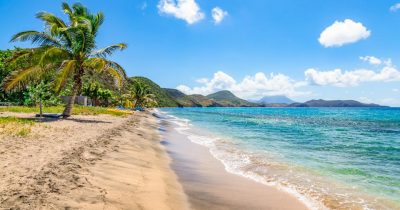

The term economic citizenship refers to a passive, one-time investment in a country that leads to citizenship and a second passport.
In the 1990s, several countries offered buy-a-passport programs—officially known as Citizenship Through Investment Programs, or CIPs—that became corrupted and eventually discontinued because citizens carrying those passports were being questioned when they traveled.
By the start of the 21st century, only St. Kitts and Nevis and Dominica offered realistic and legitimate options for economic citizenship. In the past several years, however, many countries have launched new programs, and competition, especially among Caribbean jurisdictions, has become fierce. Now, in the age of the pandemic, more European nations are launching invest-for-citizenship options.
Its important to look closely at the specifics of each program—as some provide for residency but dont actually lead to citizenship—and to consider the worth of the potential passport. How valuable is it as a travel document?
Following are the eight most sensible options available today for economic citizenship leading to a second passport.
St. Kitts And Nevis—The Grandaddy Of The CIP
The oldest current CIP program marketed was that of the two-island nation of St. Kitts and Nevis.
Just west of Antigua and Barbuda, the Federation of St. Kitts and Nevis is at the northern tip of the West Indies. St. Kitts is the more developed of the two islands, while Nevis has a more natural environment.
These islands were colonized by both the English and the French and finally dominated by the British. As a member of the Commonwealth realm, the country maintains close ties to Great Britain. Tourism, offshore banking and services, and light industry drive the economy.
The jurisdiction offers two invest-for-citizenship options.
You qualify for the first by buying a piece of government-approved real estate on either St. Kitts or Nevis for a minimum investment amount. You can invest at least $400,000 in a piece of property that must be held for five years or at least $200,000 in a property that must be held for a minimum of seven years.
Government application fees are $50,000 for the main applicant, $25,000 for the spouse and dependents 18 and under, and $50,000 for dependents older than 18.
In addition, St. Kitts offers a less expensive option that provides a passport in exchange for a donation of $150,000 for a single applicant plus $25,000 for a spouse and $10,000 for each additional dependent to the countrys Sustainable Growth Fund.
The country is waiving the additional donation amounts for up to three dependents through Dec. 31, 2020.
The application process takes up to six months.
Dominica—Lowest Cost Option For An Individual
The Commonwealth of Dominica (not to be confused with the Dominican Republic) is another top Caribbean CIP option.
Dominica, a former British territory, is located midway along the island chain and is a member of the Commonwealth of Nations. The French were the first Europeans to settle here, and their influence is still strong, giving the community a distinctly French flavor. Dominica is known for its unspoiled nature, protected parks, and large thermal lake. Agriculture is the main source of revenue, primarily fruits, flowers, and coffee.
Like St. Kitts and Nevis, Dominica offers two CIPs. The minimum investment required to qualify for the real estate investment program is $200,000. The property must be held for at least three years, which is the shortest hold period of any Caribbean program. Hold for at least five years, and you can resell your property to another CIP investor, a feature unique among the Caribbean CIP jurisdictions.
Government fees for the real estate program are $25,000 for the primary applicant, $35,000 for a couple, $35,000 for a family of four, $50,000 for a family of six, and $70,000 for a family of seven or more.
For the donation option, you make a nonrefundable, cash contribution to the governments Economic Diversification Fund. The minimum requirement is $100,000 for an individual, $150,000 for a couple, and $175,000 for a family of four.
The application entire process takes up to six months. You can expect provisional approval halfway through, at which time youll be asked to make the agreed-upon contribution or close on the real estate purchase.
If you noticed that the St. Kitts and Dominica programs are similar, thats not an accident. St. Kitts introduced its $200,000 real estate option and lowered its donation amounts specifically to compete better with those offered by Dominica.
Antigua And Barbuda—Best Big Family Option
Antigua and Barbuda is an archipelago of two main islands and several smaller islets situated at the northern end of the Lesser Antilles. Its a former British colony and now an independent member of the Commonwealth of Nations.
Antigua is the more developed and tourist-oriented of the islands, while Barbuda is mainly lowlands and beaches. It is known as the former home of Admiral Lord Horatio Nelson, and tourism is the main source of economic activity. Theres little agriculture due to limited fresh water supply.
Antigua offers four CIP options. You can acquire economic citizenship from this jurisdiction through a donation, a real estate purchase, or a business investment. In addition, Antigua offers a special option for large families that includes one year of tuition at a local university.
The minimum donation amount is $100,000, which goes to the National Development Fund (NDF). That donation covers the main applicant and up to three family members (a spouse and two children). For a family of five or more, the donation amount increases to $125,000.
Alternatively, you can invest a minimum of $400,000 in real estate located in an approved development area. You must hold the property for at least five years. Two related applicants—for example, two brothers with wives and families—can invest $200,000 each in the same property and qualify.
The business option requires an investment of at least $1.5 million in an existing or proposed company approved by the Citizens By Investment Unit. The list of qualifying businesses includes primarily real estate and tourism-related concerns.
The final option offered by Antigua and Barbuda is the newest and requires a donation of $150,000 to the UWI Fund, which covers passports for six family members. In addition, one member is able to attend one year at the university tuition free. This is the most cost-effective family program available anywhere in the world.
Grenada—Old Player Reborn
The island nation of Grenada sits at the southern end of the Antilles chain, just north of Tobago. It was initially settled by the French and ultimately became a British territory.
Today, Grenada is a stable, independent nation that maintains ties to the British monarchy. This is the so-called Spice Island, known for the production of nutmeg and mace. Grenada is a frequent cruise ship destination, and tourism is a chief contributor to the economy.
Grenadas real estate CIP requires an investment of at least $350,000. Or you can qualify for economic citizenship by making a $200,000 donation to the National Transformation Fund (NTF). The real estate investment covers an entire family no matter the size. The NTF donation covers a family of four.
Saint Lucia—Multiple Ways To Qualify
The most recent addition to the list of CIP countries in the Caribbean is Saint Lucia, a large island situated about midway in the Antilles chain.
The island is known for its pair of volcanic mountain peaks, the Pitons, which are preserved as a UNESCO World Heritage Site. The French and English went to war over Saint Lucia no less than 14 times, and, though its part of the British Commonwealth of Nations, it retains a decidedly French flair. Its beaches and dramatic scenery make it a popular cruise ship and yachting destination.
In Saint Lucia, you have four options for obtaining citizenship—a donation to the country through its National Economic Fund, a real estate purchase, an investment in approved enterprise project, or the purchase of a government bond.
The qualifying amounts for the donation program are $100,000 for a single applicant, $140,000 for a married couple, and $150,000 for a couple and up to two qualifying dependents.
For the real estate option, the minimum required investment is $300,000, and you must hold the property for at least five years.
For the enterprise project option (your business idea must be approved first; allowable categories are specialty restaurants, cruise ports and marinas, agro-processing plants, pharmaceutical products, ports, bridges, roads and highways, research institutions and facilities, and offshore universities), you must invest at least $3.5 million for the primary applicant and at least $6 million total investment if application is for multiple applicants (a joint venture), with each applicant contributing at least $1 million.
The bond option requires an investment of at least $500,000 for the primary applicant, $535,000 for a married couple, and $550,000 for a couple and up to two qualifying dependents. The bonds pay no interest, and you must hold them for at least five years.
In response to the COVID-19 crisis, Saint Lucia has introduced a temporary COVID-19 Bond option until Dec. 31, 2020. The investment amounts for this limited-time bond are $250,000 for the primary applicant (you must hold the bond for at least five years), $250,000 for a married couple (you must hold the bond for at least six years), $250,000 for a couple and up to two qualifying dependents (you must hold the bond for at least seven years); and $300,000 for a couple and up to two qualifying dependents (you must hold the bond for at least five years).
Cyprus: The Most Customizable Option
Cyprus, in the eastern Mediterranean, has close ties to both Greece and Turkey, and the countrys official languages are Greek and Turkish. However, most residents speak English, and applicants for Cyprus CIP options are not required to speak or to take a test in either Greek or Turkish.
In August 2020, the minimum donation amount was increased from 150,000 to 200,000 euros.
In addition to that cash donation, you must also invest a minimum of 2 million euros in a combination of real estate and other eligible investments, which include Cypriot company shares and bonds, a Cyprus Alternative Investment Fund, or the shipping industry. You must hold the investments for at least five years.
Citizenship isnt granted immediately after approval. First you are granted permanent residency status, then, after six months as a permanent resident, your citizenship is finalized. You need not be present in Cyprus during those six months as a permanent resident. The program has no requirement for time in the country.
The price tag of a Cyprus economic citizenship is big, but Cyprus is a member of the European Union, meaning, holding its passport, you are free to live, work, and travel anywhere in the EU.
Vanuatu: Quickest And Most Turnkey Choice
Vanuatu is an archipelago of volcanic islands west of Fiji, east of Australia, and north of New Zealand. The islands were inhabited by both French and English settlers, who, in a rare turn, jointly governed Vanuatu from 1906 until it became an independent nation in 1980. Economic activity centers on cattle ranching, fishing, and tourism. Vanuatu is renowned as a diving destination with multiple reefs and wrecks and gained recognition as a Survivor television series locale.
Vanuatu amended its constitution in 2014 to permit dual citizenship to accommodate its CIP. The program offers immediate citizenship for an entire family to a country that imposes no tax on income, wealth, or inheritance.
Vanuatus CIP, called the Development Support Program, offers only a donation option, and the minimum donation amounts have been reduced to better compete with Caribbean CIPs. You must donate $130,000 for an individual, $150,000 for a couple, $165,000 for a couple and one child, and $180,000 for a couple and two children. Each additional dependent is US$25,000.
Typically, once documents have been submitted, youre looking at about a month to approval, making this the quickest path to economic citizenship in the world.
The program has an annual cap of 600. However, though the Vanuatu CIP is gaining popularity, that limit has never been met.